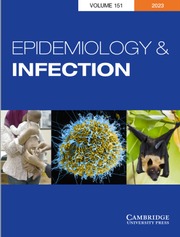Article contents
The protective action of some amino-acids against the effect of heat on complement
Published online by Cambridge University Press: 15 May 2009
Extract
1. Glycine, alanine, and several isomers of alanine, DL-glutamic acid and DL-aspartic acid, when added to fresh guinea-pig serum and allowed to stand on the bench for half an hour, will protect the complement of this serum from destruction by heating at 55 and 56° C. for half an hour, but most of the complement activity is destroyed by heating at 57° C. and it is completely destroyed at 58° C. after half an hour.
2. Derivatives of glycine do not have any protective effect.
3. Various substances of high molecular weight, that might be described as ‘protective colloids’ do not have any protective effect.
4. How these amino-acids when added to serum alter the heat-lability of the complement is not understood.
- Type
- Research Article
- Information
- Copyright
- Copyright © Cambridge University Press 1953
- 7
- Cited by




